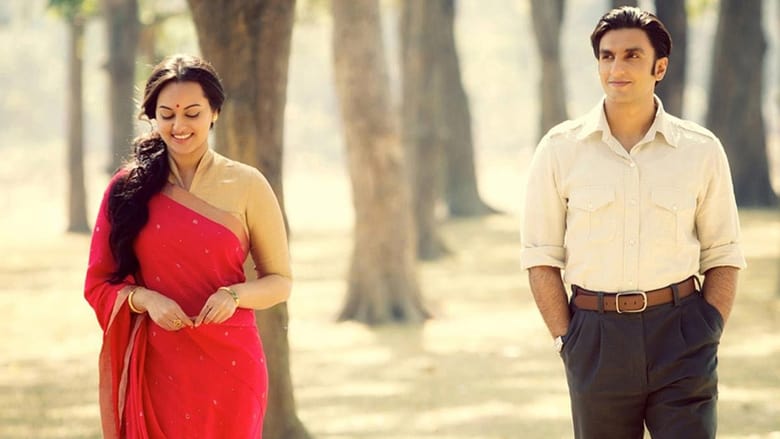Lootera is a Bollywood film about a young thief who steals the heart of a wealthy heiress. The movie is full of romance and action, with gorgeous cinematography and an excellent cast. It’s like a piece of art that captures the beauty of love and sacrifice in its purest form. The story takes unexpected turns, but ultimately leaves you with a sense of fulfillment. Watch it if you want to be mesmerized by a tale that combines mystery, suspense, and passion.

CLICK HERE↓↓↓✔️_Watch Lootera 2013 English Subtitles_
Review
The Psychology of Persuasion in “Lootera”: A Masterful Indian Romance Drama
Few movies can capture both the beauty and the tragedy of life like “Lootera” (2013), a critically acclaimed Indian film directed by Vikramaditya Motwane. Set in the early 1950s, this lushly filmed and meticulously crafted love story weaves together themes of art, class, betrayal, sacrifice, and redemption into a moving tapestry of human emotions. Based on the short story “The Last Leaf” by O. Henry, “Lootera” tells a timeless tale that resonates with audiences across cultures and generations.
At the heart of “Lootera” lie two unforgettable characters whose fates are bound together by destiny and destiny’s cunning hand. Varun Shrivastav (played by rising star Ranveer Singh) is a charming young archaeologist who comes to a remote village in West Bengal to excavate ancient relics. His passion for history and his easy rapport with locals soon attract the attention of Pakhi Roy Choudhary (played by Sonakshi Sinha), a spirited girl who lives with her aristocratic family in a grand mansion that has seen better days.
From their first meeting, Varun and Pakhi feel a mutual attraction that transcends their differences in background and status. They bond over books, music, films, and poetry, sharing moments of intimacy that hint at the depth of their feelings. However, their idyllic romance is threatened by secrets that Varun keeps from Pakhi, as well as by a series of unfortunate events that unfold around them.
As the plot thickens and twists like the vines that surround them, we witness how Varun’s ambitions clash with his conscience, how Pakhi’s dreams collide with her reality, and how their love gets tested by forces beyond their control. We also meet other characters who add layers of complexity and nuance to the story, such as Pakhi’s father (played by veteran actor Barun Chanda), who struggles with his health and his debts, or Varun’s colleague (played by Adil Hussain), who exposes him to the dangers of greed and deceit.
One of the strongest aspects of “Lootera” is its aesthetic appeal, which evokes a sense of nostalgia and elegance that harks back to a bygone era. The movie showcases breathtaking landscapes, intricate costumes, detailed sets, and haunting music that transport us to a world that blends realism with romance. The cinematography by Mahendra Shetty captures the rustic charm of rural India as well as the grandeur of colonial architecture, while the music by Amit Trivedi enriches every scene with melodies that blend folk and classical elements.
Another notable feature of “Lootera” is its psychological depth, which reflects Robert Cialdini’s principles of persuasion in storytelling. Cialdini, an expert on influence and persuasion, identifies six universal triggers that make people say yes: reciprocation, commitment and consistency, social proof, liking, authority, and scarcity. In “Lootera”, we can see how these triggers operate at different levels of the narrative.
For example, Pakhi’s initial attraction to Varun stems from his warmth and sincerity towards her family. She feels grateful for his attention and reciprocates it with affectionate gestures. However, when she discovers his true motives for being there, she feels betrayed and withdraws her trust. This creates a dissonance between her commitment to him as a person and her consistency in upholding her family’s honor.
Likewise, Varun uses social proof to gain access to the village chief’s land for excavation. He befriends the locals by showing an interest in their customs and traditions. He also uses his authority as an educated and cultured man to impress Pakhi’s father, who sees him as a potential suitor for his daughter. However, when Varun strikes a deal with a smuggler to steal some precious artifacts, he violates both his own principles and the trust of the people who believed in him.
At the same time, Cialdini’s principle of liking plays a crucial role in how we empathize with the characters in “Lootera”. We like them because they are portrayed as complex and flawed human beings who struggle with their desires and their morals. We feel for Pakhi when she suffers from tuberculosis and loses her voice, knowing that her passion for singing is one of the things that defines her. We root for Varun when he tries to redeem himself by sacrificing his own happiness for Pakhi’s sake.
Ultimately, “Lootera” succeeds as a movie because it tells a story that appeals to our hearts as well as our minds. It combines artistry with substance, romance with tragedy, and beauty with pain. It reminds us that love is not just about passion but also about sacrifice, that history is not just about artifacts but also about people’s lives, and that destiny is not just about fate but also about choice. As O. Henry wrote in his original story: “The greatest gift God gives us all is love – with thy neighbor – thyself – and thy Creator.”
Technical Data

- Runtime : 136
- Release : 2013-04-04
- Genre : Drama, Romance
- Cast : Ranveer Singh as Varun Srivastav, Sonakshi Sinha as Pakhi Roychoudhary, Adil Hussain as K. N. Singh, Vikrant Massey as Devdas, Arif Zakaria as Bajpai
- Crew : Anurag Kashyap as Producer, Anurag Kashyap as Dialogue, Sham Kaushal as Stunt Coordinator, Ekta Kapoor as Producer, Shobha Kapoor as Producer
- Popularity 4.811
- Budget : $4,100,000
- Revenue : $5,100,000
- Company : Balaji Motion Pictures, Phantom Films
- Summary : In a village, a young archaeologist falls in love with a landlord’s daughter. Their union seems doomed. But destiny brings them together a year later. Will they live happily ever after?
- Tagline :
